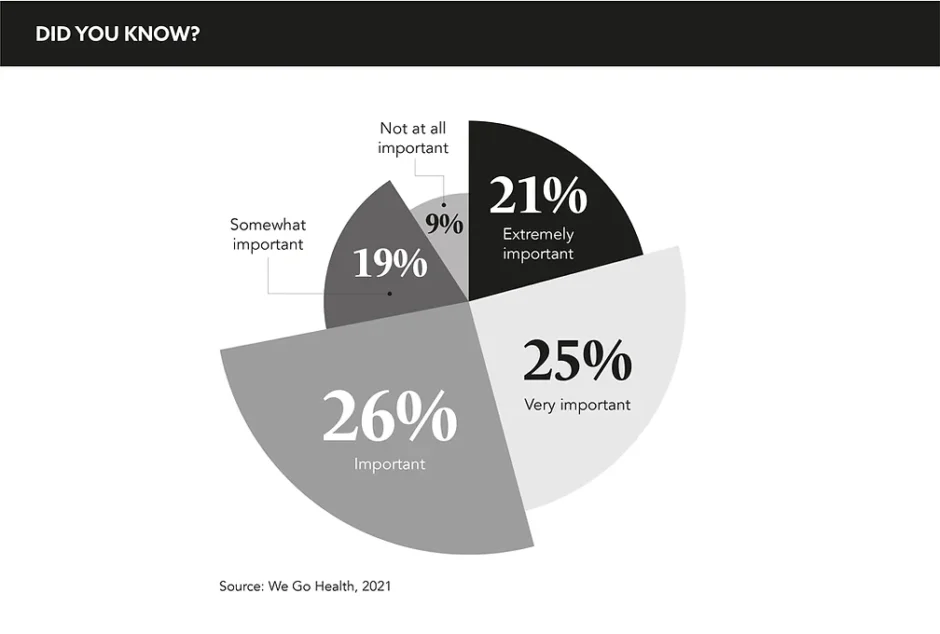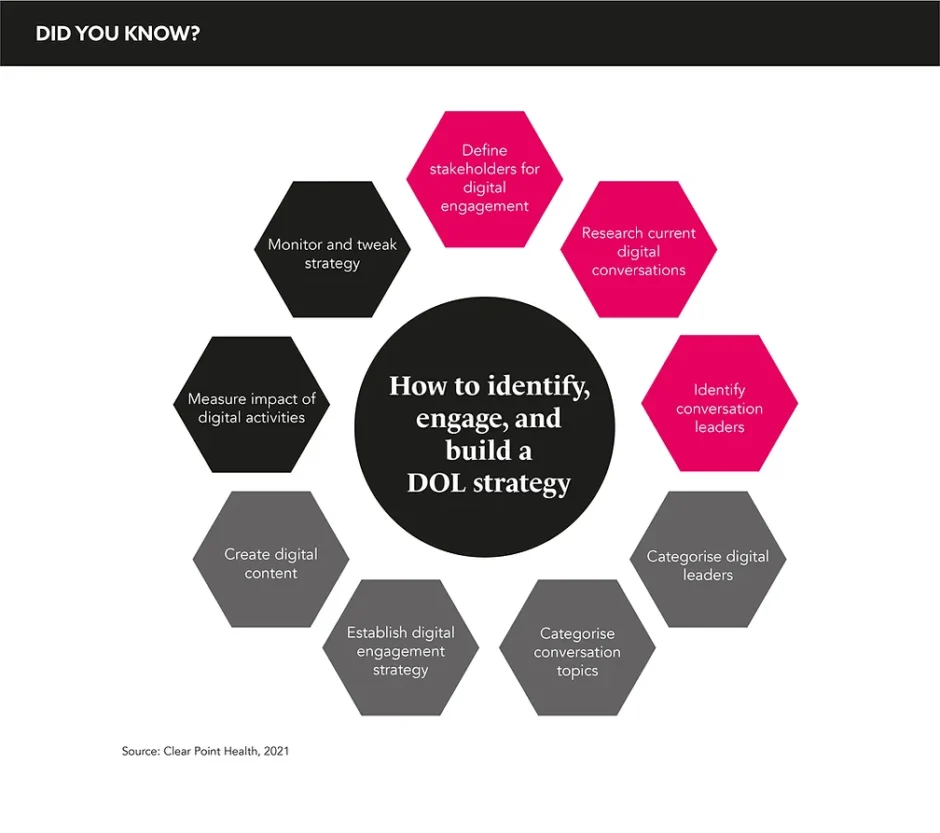Traditionally, KOLs have been the prominent influencers in the pharmaceutical industry, but the rapid digital transformation of the pandemic has created room for a brand-new approach. Digital Opinion Leaders (DOLs) represent just one facet of our new normal. What value can they bring to medical affairs?
Words by Cheyenne Eugene
We have all heard of Key Opinion Leaders, but social media has made way for a new kind of authority: digital influencers. As the medical affairs function continues to be restricted from conducting face-to-face liaison and finds itself in the deep end of technology and digitalisation, buoyancy can be found in harnessing the power of digital influencers.
Digital influencers, also referred to as Digital Opinion Leaders (DOLs), are a fairly new phenomenon within the pharmaceutical industry. They can range from, but are not limited to, healthcare professionals, medical and scientific experts, patients, and patient advocates. They are digital natives, leveraging social media channels such YouTube, Instagram, and podcasts to communicate their expertise and opinions, distribute research and findings, and raise awareness about diseases and medications, ultimately seeking to inform and inspire their online following.
Pharma’s commercial teams, particularly in the US, have been utilising digital influencers for quite some time, but Paul Simms, CEO, Impatient Health, reveals that the medical function could soon be about leverage this avenue further: “One of the greatest impacts of the pandemic has been the encouragement of cross-functional working between commercial and medical. This came partly because they had to share digital channels of communication when the pandemic began, and face-to-face interactions became impossible.” He continues: “This ‘forced collaboration’ encouraged a trend that had already been gathering pace for the past few years – to create a joint medical-commercial strategy.”
Dr Arunima Sen, Director, Drug Safety and Medical Writing, MMS, explains: “Digital influencers serve as an important channel of knowledge dissemination. Traditional methods of reaching out to the HCP and patient can lack engagement and be limited in their reach.” Although these new opinion leaders are disrupting those traditional models of medical communication, Sen urges that they can “act as a bridge to the missing link” and that collaboration could be key. With great ease, digital influencers are uniquely positioned to reach a huge scope of HCPs and patients via online platforms. Their ability to extend an organisation’s scientific share of voice makes them incredibly valuable for helping MA to meet their objectives.
Dr Maya Sharma, Global Medical Director, Win Medicare, and Advisory Board Member, JPADR, expands: “Patient and physician influencers can be game changers. By sharing their personal stories of struggle as well as finding that elusive success over a disease or condition, with the help of a particular therapy, other HCPs and patients can relate, trust, and be tempted to emulate. This may greatly help in changing the cost perception to value preposition.”
There is hard data that reveals that MA understands the relevance of digital influencers. A recent survey conducted by Monocl and the Medical Science Liaison Society found that 91% of global respondents consider digital influencers “very” or “somewhat” important. The current hurdle is finding out how best to identify, engage, collaborate with them, and develop long-term strategies around digital engagement.
Simms elaborates on how this strategy might look: “I often describe MA as ‘superhuman’ because they already have to manage so many things – expecting them to now handle digital influencers competently is a tough ask. I believe that technology, in particular artificial intelligence, could play a huge part in executing this.” He continues: “AI has not been a major part of MA’s toolbox previously, with the level of investment in medical historically having not been high, relative to commercial parts of the organisation.”
However, change is on the horizon. One UK-based company, OKRA, has developed an AI product, called MedCompass. MedCompass is able to do two things; first, determine the right type of content that will be influential to HCPs, and second, deliver it to them on a personalised basis. The ability to harness real-time data and insights will help MA to better understand its audience of both HCPs and patients, and could provide solutions for how best to collaborate and manage digital influencers.
Digital influencers symbolise a novel group of external experts. They have the ability to shape online discourse, which is now a leading forum on which MA must establish a voice. Opportunity also lies in the insights that digital influencers can provide to the MA function, which goes beyond current models. As we’ve seen in the past 18 months with the COVID-19 vaccine race, collaboration is crucial, and aligning different skillsets and resources is integeral to improving health outcomes overall. There is power in partnership and the online world is waiting for a new era of MA.











